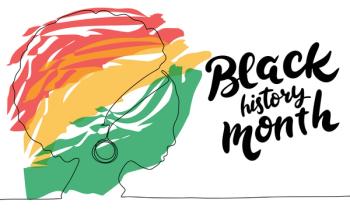
Heart Failures
Presenting the first-prize winner of the 2022 Gerald F. Berlin Creative Writing Award.
The following is “Heart Failures,” first-prize winner of the 2022 Gerald F. Berlin Creative Writing Award, introduced by a brief note from the author. The Gerald F. Berlin award recognizes exceptional prose and poetry written by medical, nursing, and doctoral students; residents; and fellows. To learn more about the award, see “
I am interested in learning about the health care needs of my community and becoming an empathetic and socially aware pediatrician. While my medical training is teaching me the pathologies relevant to solving medical diagnoses, I hope developing a compassionate bedside manner and reflecting regularly through writing will help me to become a well-rounded person and physician to my future patients. I am glad this award recognizes these goals, and I hope you enjoy this piece.
Heart Failures
Mohan peered outside his hospital window, allowing the rays from the Palo Alto sun to glisten against his rheumy eyes. He saw a cohort of hospital staff, clad in blue medical scrubs and armed with coffee travel mugs, approach the rolling greens of Embarcadero Road. It seemed they arrived to the hospital the same way they left: craving for sustenance, or sleep, or provisions. It wasn’t unlike Mohan’s attitudes during the war.
He returned his gaze to his shining, hairless legs, which were now embossed by the warmth streaming from the open windows. Sometimes, when he was nervous, he would press the nape of his thumb on his shin, easily creating an indent that would slowly resolve to normal shape. It was what his doctors described as a sign of his “heart failure.” He learned that over his lifetime, his heart’s pump function became weak. Fluid now pooled in his extremities, resulting in his now-nervous tick. He couldn’t believe that after everything they warned would be his mortal falling during the war—the cries of typhoid fever, malaria, or consequences of war trauma—he was succumbing to his own heart.
He returned to picking his shins, seemingly grazing his skin with the utmost concentration, though his mind was elsewhere and anywhere. He received word that there was a possibility Selvi was to visit today. Mohan stroked his neck, evaluating the possibility. He couldn’t bear the sensation of his now taut, edematous flesh underneath his collar. What would Selvi think of me now? he wondered. He closed his eyes, longing for Selvi to collapse in the youthful strength he used to embody. He must look so different from when Selvi last saw him, when he was emaciated and energetic in fighting for the Tamil Liberation Movement forty years prior.
“Mohan?” a familiar voice softly emerged against the backdrop of his omnipresent heart monitor.
Mohan’s eyes gleamed to the door. There, at the entryway of his room stood Selvi. He didn’t hurriedly cover the exposed legs he was ashamed of with hospital bed covers or hide the skin on his neck with a fresh polo. Seeing Selvi transported him to Sri Lanka in the 1980s, where he was a member of the Tamil Liberation Army while she was a doctor-in-training from Chennai, India. At the time, she was voluntarily serving to help casualties in one of the largest civil wars in recent world history.
Selvi approached Mohan, clutching the silk overhanging of her scarlet-colored saree. She was adorned in traditional South Asian wear. The smell of jasmine wafted in the air as she approached him—she had a tuft of flowers tucked within her thick braid, as she often wore on special occasions. Mohan made note of the lack of traditional red powder at the front of her hairline. Perhaps Selvi never ended up marrying, he wondered.
“Mohan, yennaachu? What happened?” Selvi sat on the edge of the hospital bed, observing the indents overlaying his shins. She grasped his hands as was her nature, their now calloused palms touching for the first time.
Mohan knew Selvi understood what was going on. She was at the top of her class at Chennai Medical College, and he had heard she continued to practice general internal medicine for decades. With that experience, observation itself may lend to proper deduction. And though he begrudgingly assumed she had asked “what happened” in reference to his medical condition, he silently hoped she was asking “what happened” on the topic of their relationship, that which consumed his thoughts since he left her.
But hearing her immediate usage of Tamil dialect, in a voice so familiar, felt like the juice from ripe mangoes dripping at the back of his throat, a sensation his fellow soldiers only received during the rare victories. It was a sensation he desperately longed for.
She asked again, not accepting Mohan’s pregnant pause.
Mohan looked into her eyes. Though her face was newly adorned with crow’s feet and smile lines, the raven-colored, prominent eyes he fell for in 1980 consumed him instantly. He remembered meeting her for the first time in the medical unit she was managing. An unexpected attack erupted in Colombo city center, and he suffered an ankle fracture in the fallout. He was mesmerized by her eyes and her astute prudence to medical detail. She meticulously sutured his ankle, rattling off standard questions about his medical history. Most women from India would not dare set foot in war-torn Sri Lanka whereas Selvi actively came to provide.
At the time, Sri Lanka was under the midst of a civil war between the majority native Sinhalese and the minority Tamil population, the latter of which migrated to Sri Lanka from Tamil Nadu, India several generations before and made their home in the new land. Mohan was a 5th generation Tamil Sri Lankan. He didn’t want to go to war; he never felt any nativism growing up with Sinhalese classmates. However, when the first grenades were placed in his neighborhood taking away his two cousins during their gentle adolescence, it seemed like there was no other choice for him.
“Theriyathu, I don’t know, Selvi,” Mohan sighed back. He hoped his response made it clear he was talking about just the two of them.
Selvi unclenched her grasp, wavering from the intimacy of their meeting. “I stopped by the Stanford mall. I wanted to bring you a present,” she reached into her tethered shoulder purse and pulled out a keychain of a skeleton.
Mohan grinned. He couldn’t believe Selvi harbored this tender memory of their second meeting together.
“Does this ring a bell to you?” Selvi sang, half-smiling in anticipation.
“Pinna? Of course!” Mohan chuckled. After Selvi healed his ankle during their initial meeting, he didn’t immediately leave. He badgered her with questions about herself—Why medicine? What did she like to eat? What were her hobbies? He thought perhaps he could thoughtfully surprise her with something she missed from India one day during her time on the island.
Selvi was amused. She told him that she would tell him more if he were to go get her belongings from a corner room of the medical tent. But when he entered the room, he saw a full-sized skeleton the students use for anatomy lessons cowering in the dark, and he gasped in surprise.
He blushed, taking a cursory glance at Selvi’s reaction. She was doubling down in laughter, rubbing the tears emerging from the inner corners of her eyes with her uniformed saree hanging. He shook his head, craving more from this woman.
Selvi smirked, happy with her purchase. She grazed her pruned fingertips over Mohan’s exposed legs. She recalls mornings spent in secret love, where their legs remained intertwined for hours under bed covers. In those moments, they were in solace, away from the screams of civilians above them and the announcements of bomb warnings over loudspeakers.
Mohan twisted the skeleton keychain, curious about what Selvi was thinking at that present moment. He liked it when she traced parts of his body. She often did this when they had disagreements. Mohan would back away and raise his voice, while Selvi would get close to him. It always made him feel calm and loved, even during their most intense arguments.
“Mohan, enkalukku yennaachu, what happened to us?”Selvi whispered, continuing to not meet his eyes.
Mohan exhaled. The excess accumulation of fluid in his body made it hard for him to breathe. And the thoughts of the regrets of losing Selvi added on to his physiological stress.
The war had never really ended. Deployments of various international armies and amnesty groups expedited the conclusion of the formal war, but discrimination continued. Mohan couldn’t bear the thought of continuing to stay in a land where so many of his brethren sacrificed themselves. He idolized the thought of moving to exotic-sounding areas in the western world, like Mountain View or Palo Alto, California.
But Selvi wouldn’t have it. She couldn’t fathom rearing children who would lose their Tamil knowledge, reading Hemingway and Hawthorne in school instead of her treasured Subramania Bharati. In no world was she to start serving Mission burritos for meals instead of the staple Tamil meals of curd rice with mango pickle. Selvi voluntarily joined a war for the thought of her people; Mohan had no choice but to join.
In the midst of their disagreements, various cities across the world were offering limited refugee immigration portals for Sri Lankan civilians. Mohan qualified as a citizen of Sri Lanka, but Selvi did not.
He saw photos of Palo Alto in Time Magazine’s coverage of the internet boom in the ‘90s. He shared photos of the year-long sun and blue skies with Selvi, which was in contrast to Colombo’s smog-covered clouds from years of ammunition accrual. Perhaps they would have children who could grow up safe in suburban California. They could easily make friends with the children of well-educated South Asian immigrants who were heading in droves to work as Apple and Microsoft engineers. Perhaps their children would go on to Stanford Medical School, stay near their parents, and carry on the legacy of their mother.
Selvi considered this. Mohan made promises to bring her over and figure out immigration information once he settled into Palo Alto. Time passed, international phone calls became more expensive, and she never came.
Selvi looked at Mohan. Her eyes were glassy, the black kajal blanketing her inner eye linings were wet with tears. She approached him, nestling the side of her head underneath his chin. He crossed his legs in between hers and adjusted the hospital blanket over their torsos, side by side. It was like 1980 again. They were lying together, protected from the physical noise of their surroundings and the voices of regret in their heads.
Ms Kumar is a fourth-year medical student at the University of Massachusetts in Worcester, Massachusetts.
Newsletter
Receive trusted psychiatric news, expert analysis, and clinical insights — subscribe today to support your practice and your patients.






